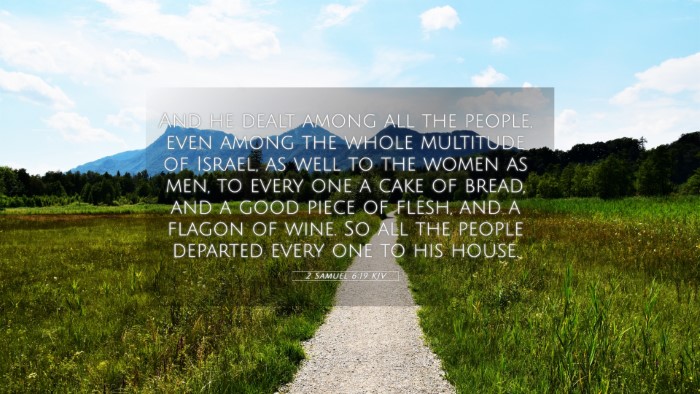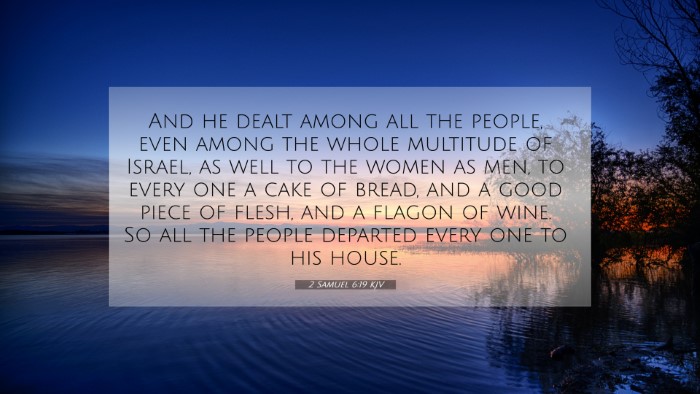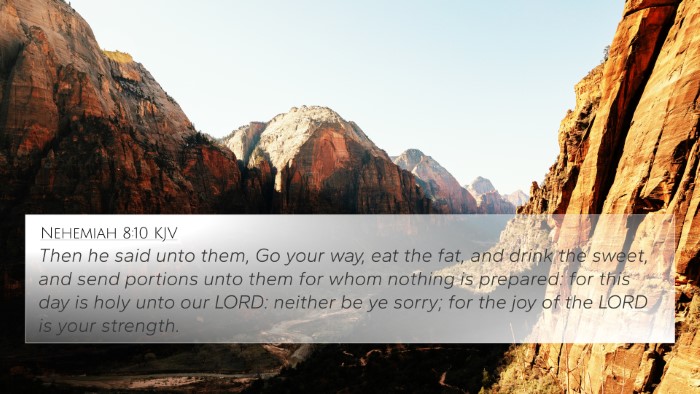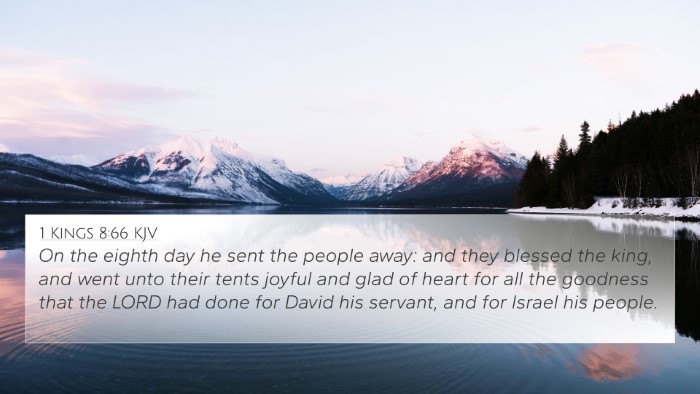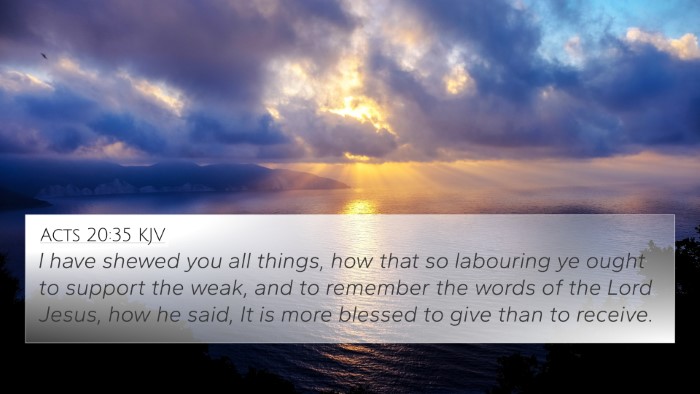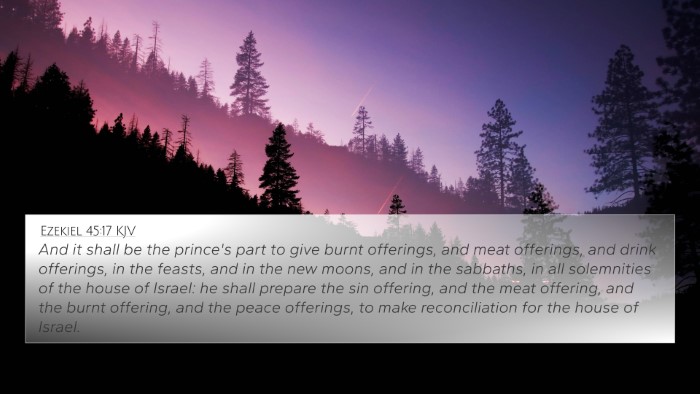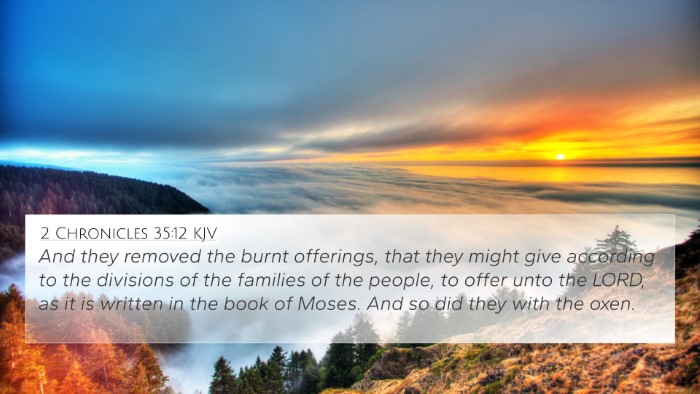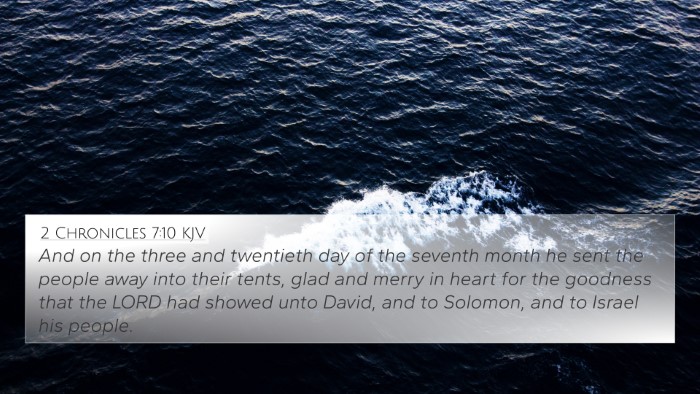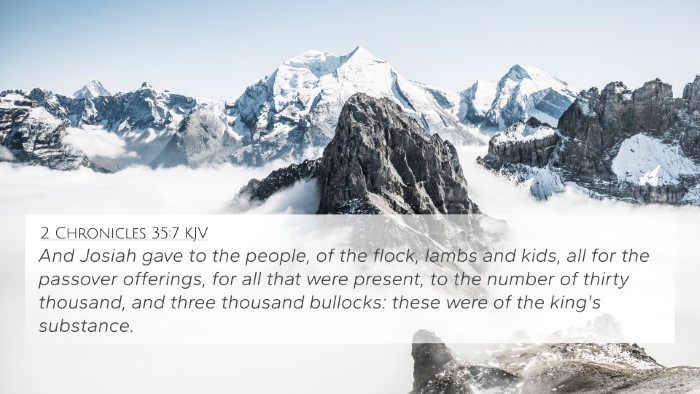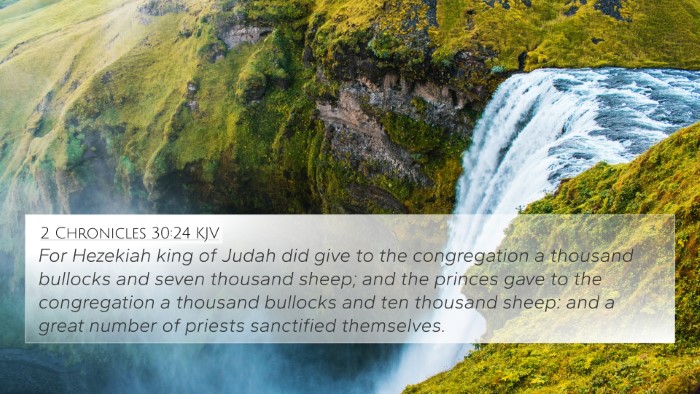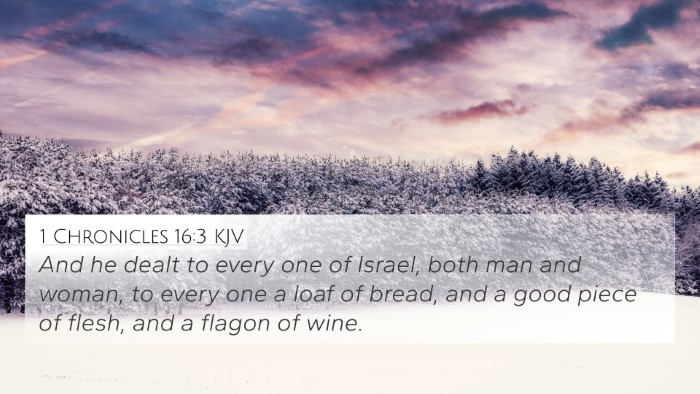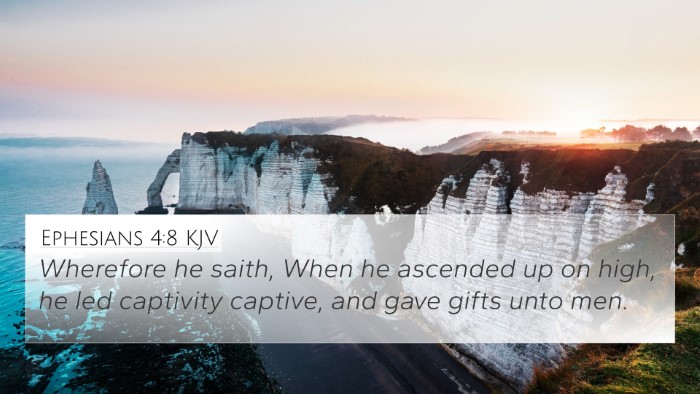Understanding 2 Samuel 6:19
In 2 Samuel 6:19, we find a significant moment as King David distributes food to all the people of Israel after bringing the Ark of the Covenant into Jerusalem. The verse states:
"And he dealt among all the people, even among the whole multitude of Israel, as well as to the women as men, to every one a cake of bread, and a good piece of flesh, and a flagon of wine. So all the people departed, every one to his house."
Summary of the Verse Meaning
This verse encapsulates themes of joy, fellowship, and worship. David's actions reflect his gratitude and the celebratory nature of this occasion, recognizing the importance of unity within the community.
Commentary Insights
Below is a summary of insights from various public domain commentaries, including Matthew Henry, Albert Barnes, and Adam Clarke.
-
Matthew Henry:
Henry highlights David's role as a leader not just in spiritual matters, but also in the physical welfare of the people. By sharing food, David fosters community and joy among the Israelites, emphasizing the importance of shared celebrations during religious observances.
-
Albert Barnes:
Barnes notes the inclusivity of David's feast, as he provides for both men and women, symbolizing the unity of all Israel. This act serves as a form of acknowledgment of God’s blessings and the collective joy of the people. Barnes also points out the significance of the Ark's entry into Jerusalem, marking a turning point in the nation's spiritual life.
-
Adam Clarke:
Clarke elaborates on the cultural context of sharing a meal, which signifies community bonding. This occasion reflects the celebratory nature of worship and illustrates how such gatherings strengthen social bonds among the Israelites. Clarke also highlights the typical feast's role during significant spiritual events, like the return of the Ark.
Bible Verse Cross-References
This verse can be cross-referenced with the following scriptures to enrich understanding:
- Deuteronomy 12:7: "And there ye shall eat before the Lord your God, and ye shall rejoice in all that ye put your hand unto..."
- 1 Chronicles 16:3: "And he dealt to every one of Israel, both man and woman, to every one a loaf of bread, and a good piece of flesh, and a flagon of wine."
- Psalm 116:12-13: "What shall I render unto the Lord for all his benefits toward me? I will take the cup of salvation..."
- John 6:35: "And Jesus said unto them, I am the bread of life: he that cometh to me shall never hunger..."
- Acts 2:46-47: "And they, continuing daily with one accord in the temple, and breaking bread from house to house, did eat their meat with gladness and singleness of heart..."
- Revelation 3:20: "Behold, I stand at the door, and knock: if any man hear my voice, and open the door, I will come in to him, and will sup with him, and he with me."
- Matthew 26:29: "But I say unto you, I will not drink henceforth of this fruit of the vine, until that day when I drink it new with you in my Father's kingdom."
Connections Between Bible Verses
2 Samuel 6:19 illustrates the connecting theme of communal joy and sharing in the blessings of God found throughout the Bible. It draws parallels with Jesus’ teachings on the importance of fellowship and nourishment in spiritual life, particularly illustrated in the New Testament.
Thematic Bible Verse Connections
This verse serves as a touchpoint for themes such as:
- Community Celebration: Reflects the importance of community and collective worship.
- God’s Provision: Highlights the blessings that come from God that are shared among His people.
- Joy in Worship: Reinforces the idea that worship should be a joyous occasion.
Bible Reference Resources
To study these connections further, consider using tools for Bible cross-referencing. These can enhance your understanding of linking Bible scriptures and the themes they represent.
Conclusion
2 Samuel 6:19 exemplifies the essence of joyful worship and community among the people of Israel. By understanding this verse within its broader biblical context, we can gain richer insights into the connections between Bible verses and deepen our understanding of scriptural celebrations.

